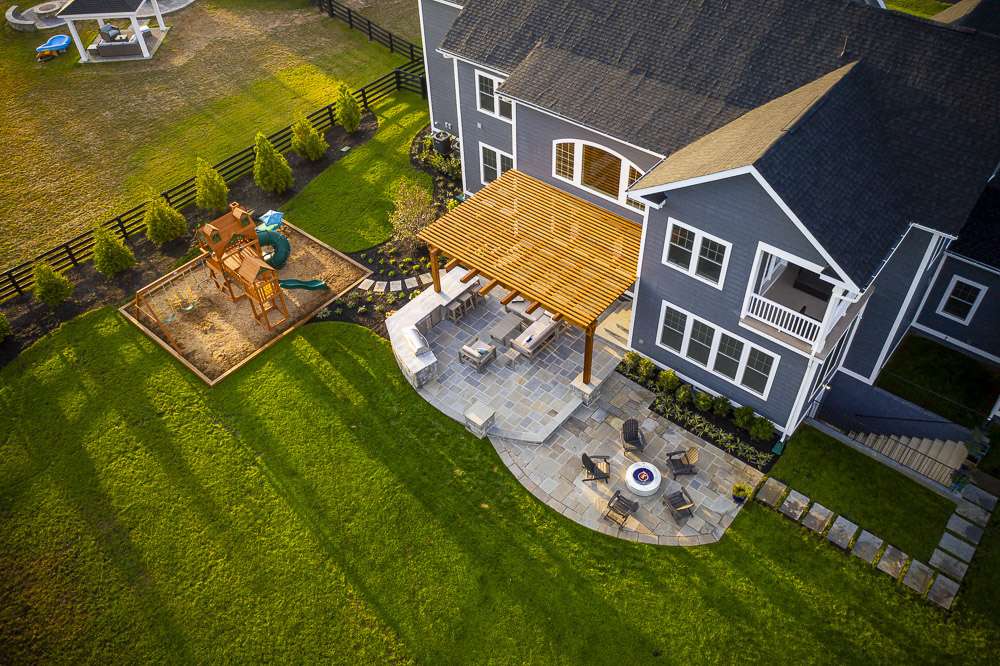So, you’re thinking about getting a saltwater pool. In recent years, saltwater pools have really risen in popularity, largely because homeowners want to shy away from entirely chlorine-based pools. Chlorine can be harsh on the eyes, hair, and skin, and some children are particularly sensitive to its effects.
While it’s on your radar, chances are you still have some questions about saltwater pools. Like any big investment, you really want to understand what you’re getting before you spend the money.
We love that you want to be an educated consumer. That’s why we’re sharing some of the most common questions about saltwater pools that we tend to get…as well as our answers. Hopefully, this will get you on the right path to understanding whether it’s the right choice for you.
Saltwater Pool FAQs
Here are some of the common questions about saltwater pools that we have been asked.
1. How does a saltwater pool system work?
Having a saltwater swimming pool is not like having a pool full of seawater (as people sometimes mistakenly believe). We have heard it said that it’s like “swimming in the ocean,” but that’s not the case.
Instead, saltwater systems work by drawing on dissolved salt to generate chlorine. The salt generator uses a specialized process known as electrolysis to break down or separate the salt (NaCI) in the water.
This process helps to clean the pool and eliminate contaminants, which is important when it comes to a clean and healthy swimming pool.
Because electrolysis is producing your chlorine, one of the big benefits of a saltwater pool is that you never have to buy, store, or handle this chemical. The lower amounts of chlorine also make saltwater pools gentler on the skin and eyes.2. So…a saltwater pool still has chlorine?
The answer to this question is YES, a saltwater pool still does have chlorine.
We understand that people often assume a saltwater pool is chlorine-free, but this just isn’t the case. Many of the questions about saltwater pools definitely have to do with the chlorine makeup.
The big difference is that the pool is adding chlorine to your water in a different way. It’s actually being produced rather than added. It ends up being less chlorine which (as mentioned above) is typically gentler on the skin and eyes.
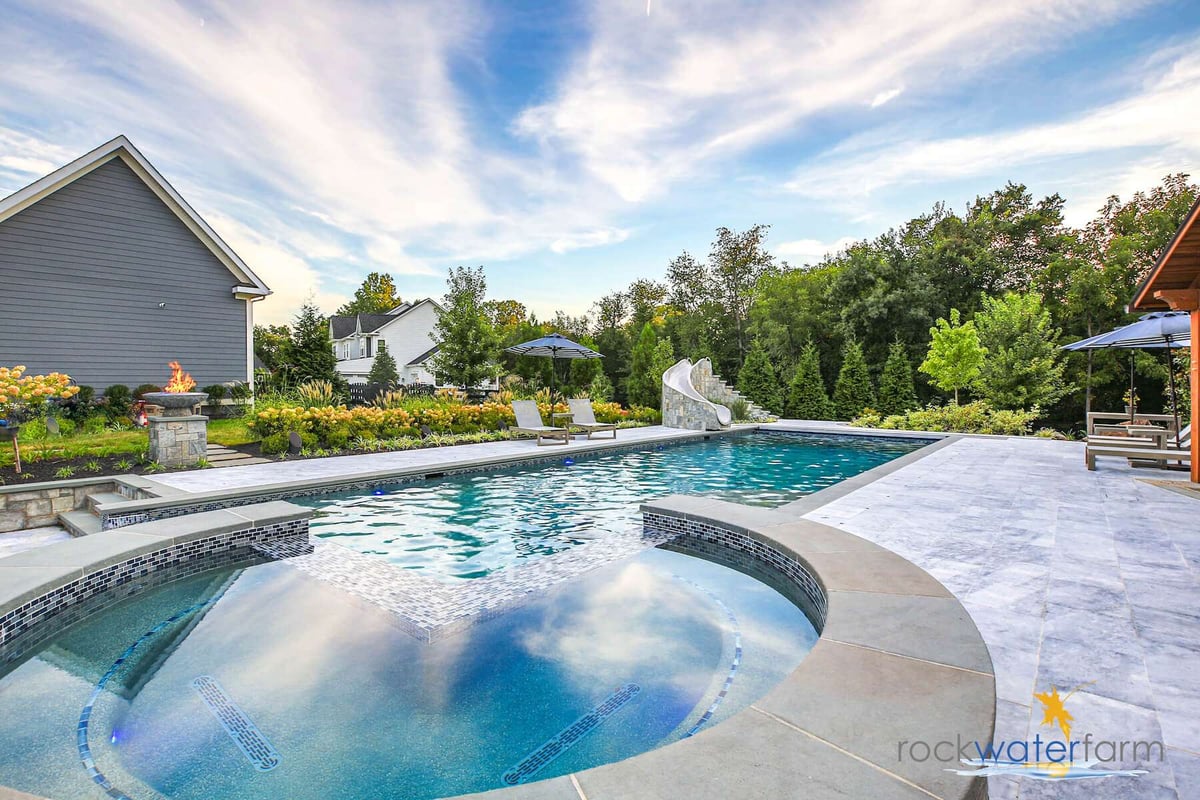
Less chlorine also means that you won’t have to worry about the water causing fading to your swimwear or other gear. And most homeowners really appreciate fewer chemicals when it comes to having their young children use the pool. Homeowners describe the water as being “softer,” and they often report that their skin does not feel as dried out after swimming.
Many people do describe saltwater pools as an overall more enjoyable swimming experience and say that they definitely notice a difference in the water.
3. Can the saltwater damage the pool?
Salt is corrosive and there’s no way around that. Saltwater can be hard on metal pool parts and accessories. Metal handrails and ladders can corrode faster in a salt pool. It is typically the anchors that are the problem.
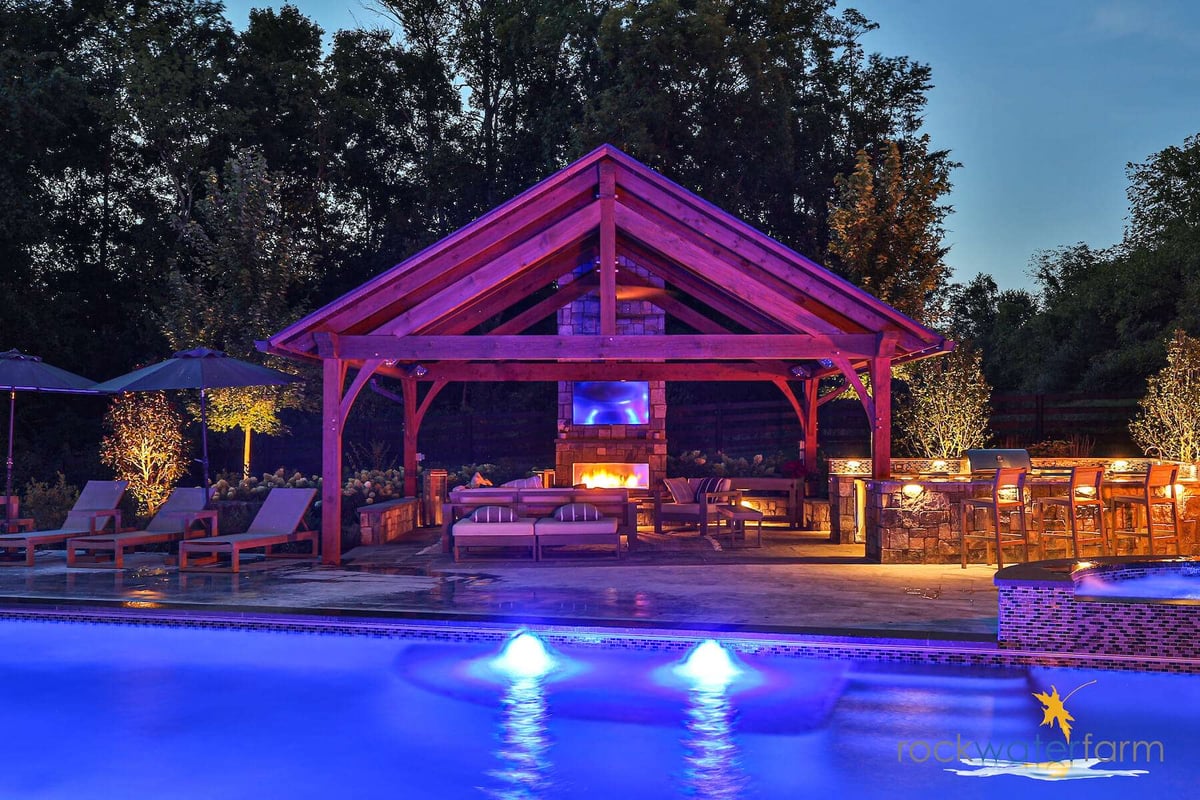
But there are solutions. Your pool designer will just need to be more mindful of what materials and fixtures are used in and around the pool.
4. Are saltwater pools safe?
Yes, saltwater pools are safe. As we mentioned before, people tend to assume it’s going to be like swimming in the ocean but that’s not the case at all. You likely won’t taste or notice a significant difference.
Saltwater pools only have one-tenth of the salt in ocean water. The good news is that means no stinging (or need to wear goggles all the time).
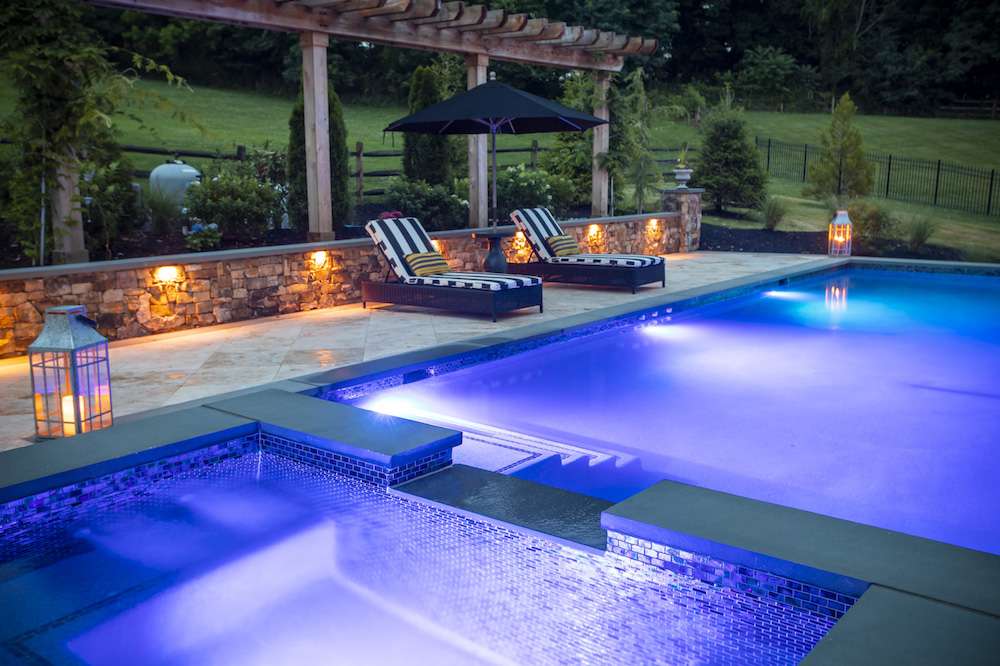
The bigger issue is making sure that the water is clean and safe to swim in. A saltwater pool system can effectively kill or inactivate bacteria or viruses (like a choline pool). You do need to stay on top of your pool’s chlorine levels, though, as changes might not be as overtly noticeable.
Test your water regularly to make sure it’s safe for swimming.
As far as safety questions about saltwater pools, it’s also worth mentioning that the fact chlorine chemicals do not need to be handled or stored is another safety factor that comes into play. Some would argue that this is another reason that these pools are a safe choice for families.
5. Are saltwater pools the best choice?
We know that a lot of people want to know if saltwater pools are superior to chlorine pools.
Personally, we like them for some of the benefits that we talked about. They are safer on the skin, eyes, and hair…they require no chlorine storage or handling…and many feel a saltwater pool experience is overall gentler and more enjoyable.
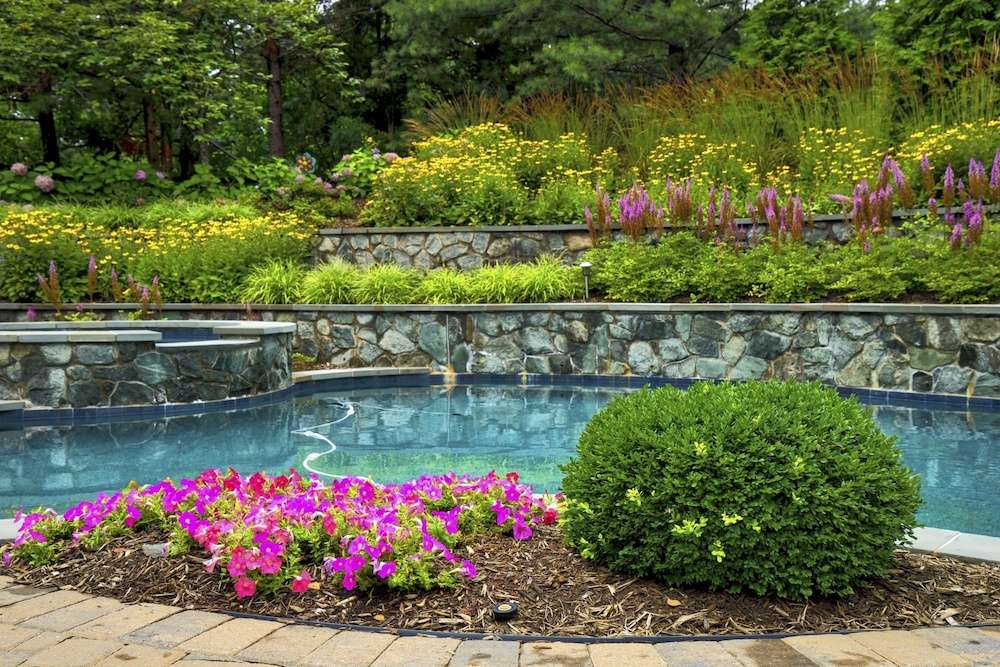
But like everything in life, there are pros and cons. Saltwater pools tend to be more expensive than chlorine pools. A saltwater system is more complex and thought to be of higher quality, so it costs more.
But there is also a third option, which many people aren’t even aware exists. Ozone Systems are an option for homeowners who have extremely sensitive skin and want to reduce chlorine even more.
Ozone is a gas composed of three oxygen atoms. Because ozone is an oxidizing agent, it is able to work as a disinfectant within a swimming pool. This can make it an alternative to a saltwater pool or chlorine pool, for the person who is serious about reducing chlorine as much as possible.
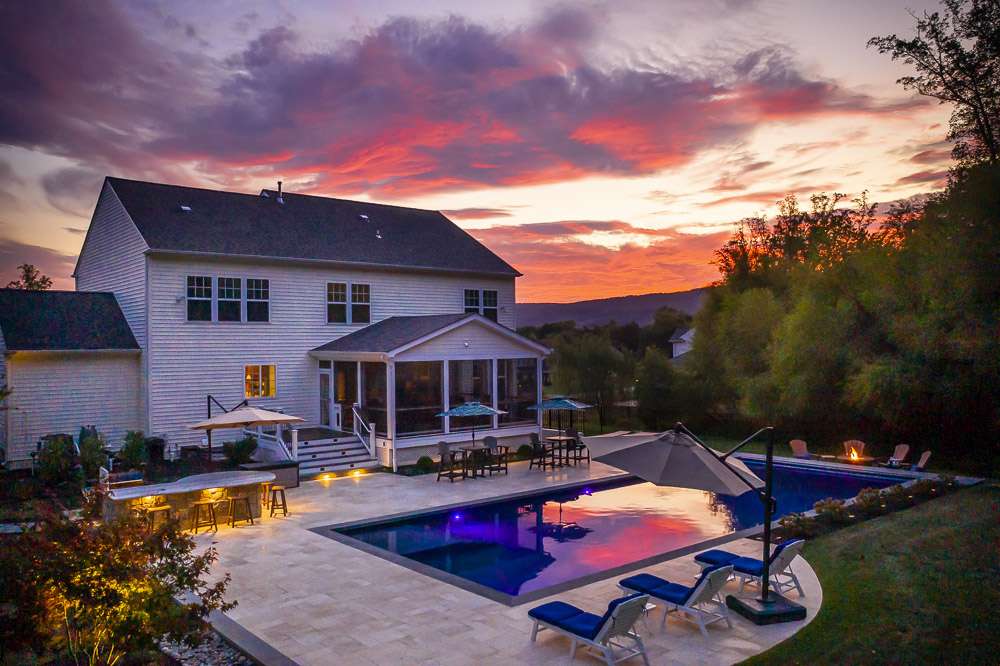
However, even with an ozone pool, you are still using some chlorine (or bromine) so you won’t get away from it entirely. Ultimately, the goal is to ensure that your pool is fully sanitized and safe for swimming.
While ozone pools might be gaining a bit of popularity for those with sensitive skin, it is unlikely this option will surpass saltwater. As you might have guessed, this is going to be an expensive option and it’s not going to be right (or necessary) for everyone.
But as a company that wants to provide you with all the options, it’s something we can discuss.
Saltwater Pool Installation in Northern Virginia
These days, we are involved in a lot of saltwater pool installations in Northern Virginia. Many homeowners do find these pools to be a superior product and have been very happy with their finished product.
Ultimately, you want to choose a pool that is going to be the best fit for your family and lifestyle. With a guide on your side, you can make sure that all of your questions about saltwater pools (or any pool for that matter) are answered.
There are always going to be pros and cons to pool decisions and you ultimately want to end up with the choices that leave you the happiest. That means taking the time to walk through all of the options with a swimming pool designer and builder who truly knows their stuff. At Rock Water Farm, we know this is an exciting time for you and your family! A swimming pool is one of the most exciting additions that you could ever make to your yard and will soon be the source of ongoing family members. While there is a lot of decision-making involved, with the right guide on your side, you’ll be sure to end up with the pool of your dreams.
If you’d like to get started on planning a dream pool for your Gainesville, Haymarket, or Bristow, VA property, talk to an expert, choose a solution that rocks, and then get ready to enjoy your property to the fullest.



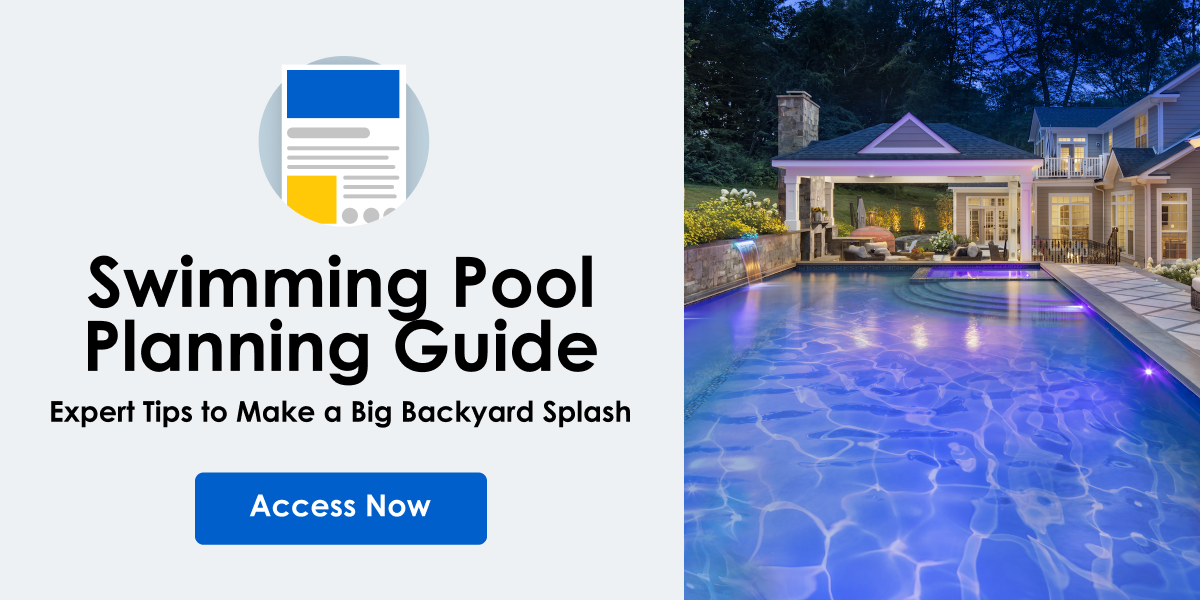

%20Facebook%202025-03-17%20at%201.11.44%20PM.jpg)
